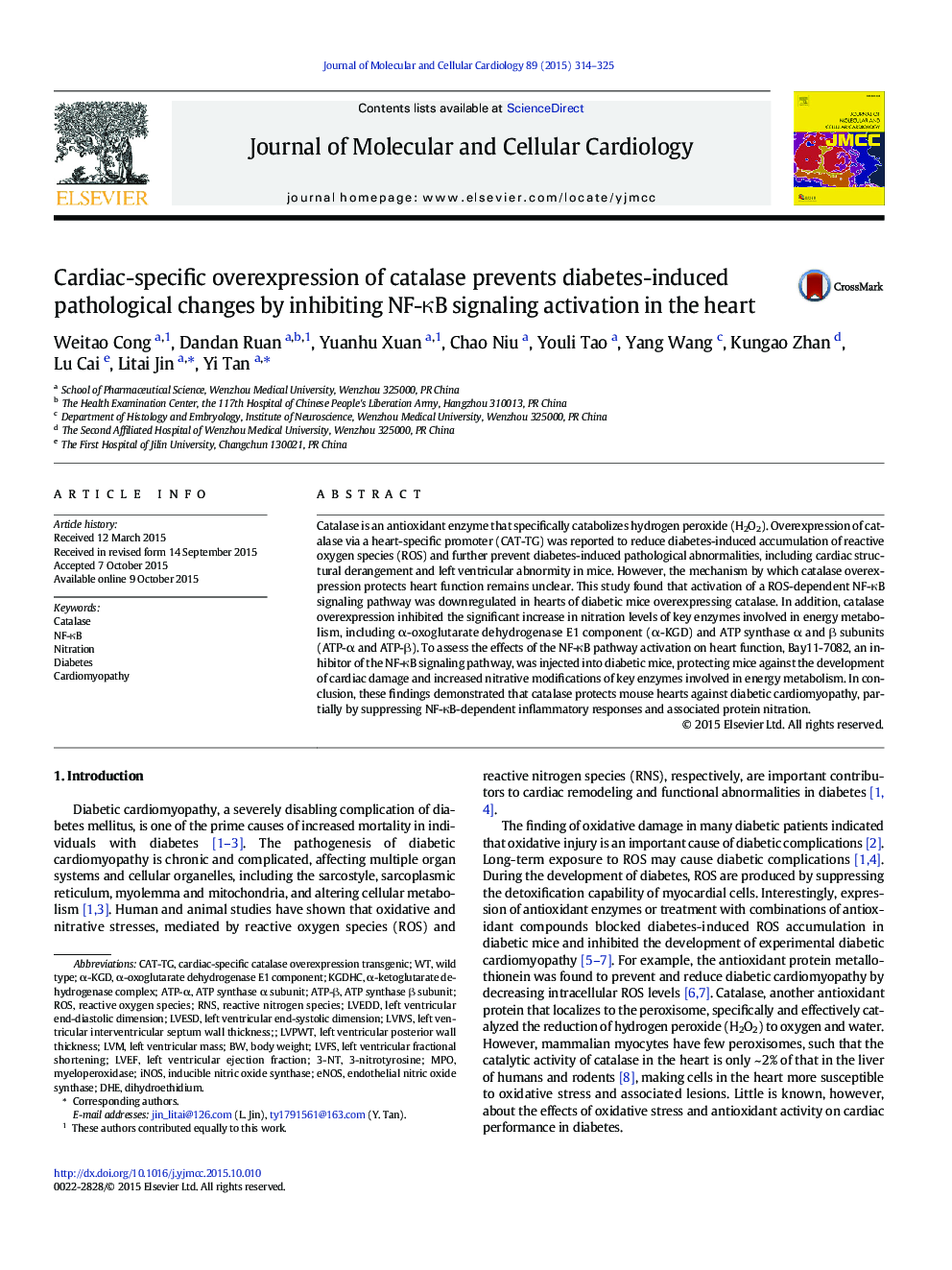| Article ID | Journal | Published Year | Pages | File Type |
|---|---|---|---|---|
| 10953722 | Journal of Molecular and Cellular Cardiology | 2015 | 12 Pages |
Abstract
Catalase is an antioxidant enzyme that specifically catabolizes hydrogen peroxide (H2O2). Overexpression of catalase via a heart-specific promoter (CAT-TG) was reported to reduce diabetes-induced accumulation of reactive oxygen species (ROS) and further prevent diabetes-induced pathological abnormalities, including cardiac structural derangement and left ventricular abnormity in mice. However, the mechanism by which catalase overexpression protects heart function remains unclear. This study found that activation of a ROS-dependent NF-κB signaling pathway was downregulated in hearts of diabetic mice overexpressing catalase. In addition, catalase overexpression inhibited the significant increase in nitration levels of key enzymes involved in energy metabolism, including α-oxoglutarate dehydrogenase E1 component (α-KGD) and ATP synthase α and β subunits (ATP-α and ATP-β). To assess the effects of the NF-κB pathway activation on heart function, Bay11-7082, an inhibitor of the NF-κB signaling pathway, was injected into diabetic mice, protecting mice against the development of cardiac damage and increased nitrative modifications of key enzymes involved in energy metabolism. In conclusion, these findings demonstrated that catalase protects mouse hearts against diabetic cardiomyopathy, partially by suppressing NF-κB-dependent inflammatory responses and associated protein nitration.
Keywords
LVPWTKGDHCNF-κBLVFSLVESDLVEDdLVMLVEFiNOSRNS3-NTeNOS3-nitrotyrosineMPOROSLeft ventricular end-diastolic dimensionLeft ventricular end-systolic dimensionDiabetesLeft ventricular massdihydroethidiuminducible nitric oxide synthaseendothelial nitric oxide synthaseLeft ventricular posterior wall thicknessα-ketoglutarate dehydrogenase complexmyeloperoxidasewild typeNitrationDHEbody weightCatalaseCardiomyopathyleft ventricular ejection fractionleft ventricular fractional shorteningreactive nitrogen speciesReactive oxygen species
Related Topics
Life Sciences
Biochemistry, Genetics and Molecular Biology
Cell Biology
Authors
Weitao Cong, Dandan Ruan, Yuanhu Xuan, Chao Niu, Youli Tao, Yang Wang, Kungao Zhan, Lu Cai, Litai Jin, Yi Tan,
